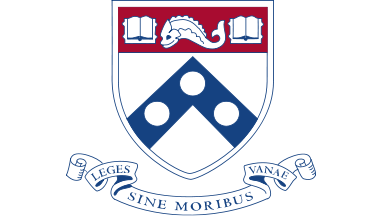UPenn Department of Medical Ethics and Health Policy
Perelman School of Medicine, Université de Pennsylvanie

The Department of Medical Ethics & Health Policy is based in the Perelman School of Medicine at the University of Pennsylvania. Under the direction of the department chair, Ezekiel Emanuel, MD, PhD, the Department stands as one of the premier institutions of research and education in medical ethics and health policy in the world. The Department's distinguished faculty produce and disseminate scholarship and conduct one of the leading bioethics master’s programs in the world. In addition to their own projects, faculty members supervise research being carried out by undergraduates, graduate students, medical students, doctoral students and post-doctoral fellows.
The Department’s presence in the world of biomedical ethics education is ever-growing. In 2013, the department launched the Master of Science in Medical Ethics, which is designed to educate the next generation of bioethicists. The University of Pennsylvania and the Department have partnered with Coursera to offer free, online courses taught by our faculty.
The Department serves as the hub for interdisciplinary research and collaboration on topics across four research areas in biomedical ethics: neuro- and mental healthcare ethics, health policy, behavioral economics, research ethics, global bioethics, and the ethics of healthcare allocation. Our health policy research follows three tracks: reducing low-value services; economic and health impacts of policies, such as smoking cessation and workplace wellness; and implementation sciences, with specific effort towards replicating effective programs in the healthcare delivery system.
The Department of Medical Ethics & Health Policy is home to 15 full-time faculty members. Several faculty members hold primary or secondary appointments in other departments within the Perelman School of Medicine at the University of Pennsylvania or the Children's Hospital of Philadelphia (CHOP). An interdiscplinary group, faculty members are trained in medicine, philosophy, anthropology, law, and the history and sociology of science.